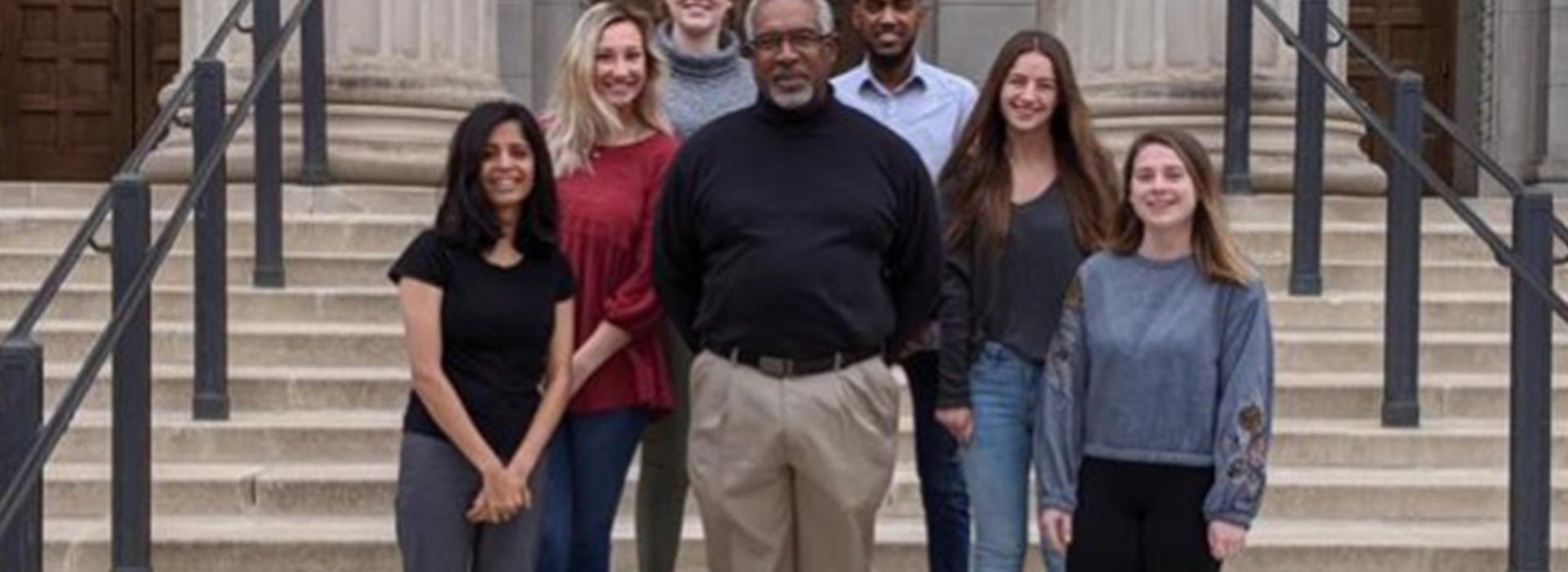
American Heart Association Awards ‘Inclusive Excellence’ Grant to Medical School Department
The Department of Integrative Biology and Physiology at the University of Minnesota Medical School has been awarded a $150,000 grant from the American Heart Association (AHA). The project titled, “University of Minnesota inclusive excellence cardiovascular research opportunity program for undergraduates,” is a concept that the department has been eager to execute.
“The whole premise behind inclusive excellence is centered around the word ‘excellence,’” shared Joseph Metzger, PhD, head of the department and Maurice Visscher Land-Grant Chair of Physiology. “The idea is not to dilute the word excellence but rather to broaden the scope of opportunity, searching far and wide in a proactive and purposeful way in promoting access to opportunity.”
The objective of this grant extends much further than its goals in cardiovascular research. Emilyn Alejandro, PhD, leader of the research team and assistant professor in the department, shared that this grant is integral to the department’s higher calling for the advancement of diversity, equity and scholarship.
“This grant will open up more opportunities for qualified and dedicated students from disadvantaged backgrounds to work in laboratories, and hopefully, they can catch the ‘research bug’ and consider a fascinating career in science just like I did when I was an undergraduate student,” Dr. Alejandro said.
Vincent Barnett, PhD, a professor in the department and a leader of the grant, shared that this grant corresponds with their long-term goal of increasing the diversity of the biomedical research community. “We plan to accomplish this by reaching out to undergraduates who may not have seen a reflection of themselves in the sciences,” he said.
The department has the highest amount of racial diversity than any other U of M department in a STEM field. Dr. Metzger believes that this is a reflection of the intentionality that every faculty and staff member in the department shares towards purposeful inclusive excellence. He shared that this grant will also be used to initiate lasting relationships and mentoring opportunities within the department.
“It’s like watering a plant – it starts as a small little seedling, and you can’t just ignore it. You’ve got to go in and give it a little water, put it in the right environment and, all of the sudden, watch that plant grow and blossom,” Dr. Metzger said. “Not all plants will grow and blossom but some sure will. We hope that those new minds blossom and grow a passion for medicine and science.”
Being purposeful and intentional about nurturing the development of students is directly in line with the vision of the AHA. They provide grants focused on health equity, while finding solutions to end the number one cause of death in the United States – heart disease.
“Our lab is focused on molecular and integrative biology and the physiology of heart, muscle, health and disease – all of which are significant problems in our society,” Dr. Metzger said. “I’m interested in people that want to join our group with the goal of contributing to our society. It’s a vocation, not a job, and it’s a noble pursuit because everything we do is for everybody, not just a select few.”
“Our AHA grant focuses on experiences for juniors and seniors and fits hand-in-glove with our department initiative,” Dr. Barnett said. “The AHA grant encourages us to recruit students locally and nationally, and we plan to extend those offers to qualified applicants.”
Dr. Alejandro shared that although they aspire to be a nationwide-leading physiology program in research and education, it’s just as important that they work to provide equal opportunities in training the next generation of scientists and healthcare professionals.
“How do we know who the best quarterback is until we look under every rock, and in every neighborhood, and give everyone the opportunity to even know what the game is,” Dr. Metzger said. “We really want to shake the trees.”